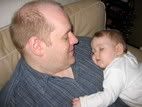'Only You Can Save Mankind' by Terry Pratchett, 1992
For plot info etc see here.
After reading a couple of lengthy novels I fancied something much shorter and more familiar. This is not one of my favourite Pratchett's but it is very short and I have read it several times.
I do like Johnny Maxwell. He's a bit of a junior 'everyman' and tends to be more thoughtful than those around him. His group of friends are engaging as well. They are all misfits who have collected together - this seemed to be a clique in most schools I attended.
I like the descriptions of the aliens - the Scree Wee- who are typical computer game aliens; ie they are hopeless at fighting back.
This is a good addition to the other Johnny Maxwell books, although it is not as rounded as 'Johnny and the Bomb', and it greatly lacks the elegance of the Discworld novels. However, it is aimed at younger readers and is short enough to hold their attention.
Remember: "Actual games shots taken from a version you haven't bought".
After reading a couple of lengthy novels I fancied something much shorter and more familiar. This is not one of my favourite Pratchett's but it is very short and I have read it several times.
I do like Johnny Maxwell. He's a bit of a junior 'everyman' and tends to be more thoughtful than those around him. His group of friends are engaging as well. They are all misfits who have collected together - this seemed to be a clique in most schools I attended.
I like the descriptions of the aliens - the Scree Wee- who are typical computer game aliens; ie they are hopeless at fighting back.
This is a good addition to the other Johnny Maxwell books, although it is not as rounded as 'Johnny and the Bomb', and it greatly lacks the elegance of the Discworld novels. However, it is aimed at younger readers and is short enough to hold their attention.
Remember: "Actual games shots taken from a version you haven't bought".
Labels: discworld, science fiction, terry pratchett

